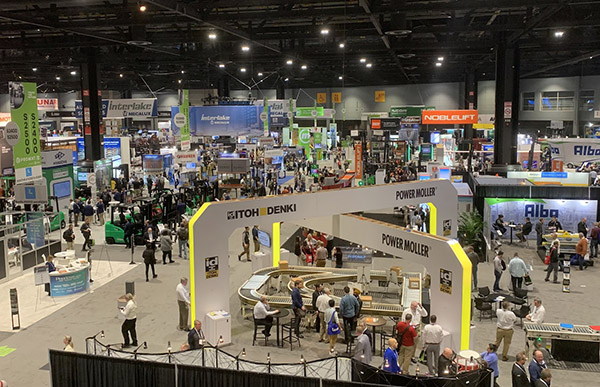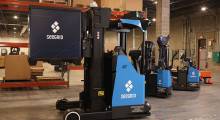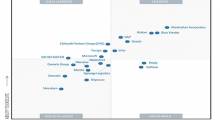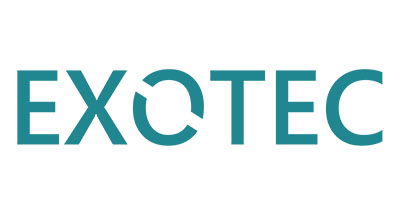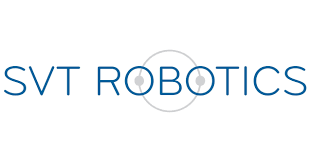At ProMat 2023, I had a fascinating conversation with Brett Wood, the president and CEO of Toyota Material Handling North America. He noted that if you based your view of the economy on television news, you’d think we’re in the doldrums. Now, the long-predicted recession may be coming – we’ve never had this many consecutive years of growth without a downturn in the past – but the numbers that relate to industry are pretty darn good.
In Toyota Material Handling's corner of the industry, these are the best of times. Wood said the materials handling industry sold a combined total of 663,000 units in 2021 and 2022 in the U.S. and Canada.
“A normal year is in the 200,000s,” Wood told me, adding that “we’ve never sold over 300,000 units in a year.”
2023 is on track to be down 25% from 2022, which Wood characterized as a positive. After operating at a breakneck pace for the past few years, “our factories need to take a breath,” he said.
Wood noted that the industry is still on track to post its fourth or fifth highest sales of all time despite the correction. Think about that—a year in which sales may drop by 25% will still be one of the best years on record.
Wood’s takeaway, both from his role in the lift truck industry and as member of the board of governors at MHI, the organization that produced ProMat, was this: “I’ve never seen a time when customers are so future thinking and not just putting out fires. Thank goodness our customers don’t read the news.”
Wood’s view of what’s happening in our world was supported by a piece in The Wall Street Journal that reported that, despite the doldrums in commercial real estate and Amazon taking a pause from building out its network, the market for warehouse, distribution, and manufacturing space remains strong. All those buildings are going to need lift trucks, racking, conveyors, sortation systems, and robots.
ProMat 2023 reports record growth
That brings us to ProMat 2023. Like last year’s MODEX in Atlanta and lift truck sales, this year’s show set records for attendance, exhibitors and exhibition space.
MHI reported an overall registration count of 50,924 attendees from 178 countries – a 12% increase over ProMat 2019. It also said it had 1,051 exhibitors and 562,700 sq. ft. of exhibits. Given all of the new technology on display, it really is an exciting time to be in the industry.
With so many exhibitors, and so much to see, it’s challenging to sum up the event, but I’ll offer three takeaways.
Integration has never been more important
Systems integrators have been talking about islands of automation, and how to avoid them, as long as I’ve been writing about materials handling. And that’s a long time.
With the introduction of new automated technologies, especially robotics, the challenges to integration are back in the spotlight. Operators don’t want to just drop a new technology into an existing process. Instead, they want to combine technologies to create new and better processes. It’s a reason that the theme at Trew’s booth was “orchestrating” systems.
Enabling integration was the whole premise behind SVT Robotics, which made the live integration of automation components the centerpiece of its booth and was the company I heard mentioned more often than any other.
But it was also the subject of much of Softeon's conversations at its booths since MODEX 2020 and again at this year’s ProMat. With the high cost of labor and the increasing reliance on automation, getting the most out of our investments through eliminating those islands of automation is perhaps the challenge of our time.
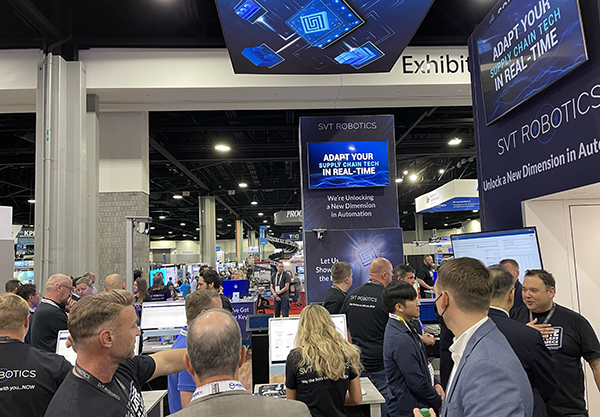
Is conventional automation poised for a comeback?
For the past five or six years, so much of our focus and attention has been on e-commerce and piece picking that it’s easy to forget that handling starts with pallets and cases that then get broken down into eaches. Flexible automation for piece picking is still top of mind, but I’m increasingly hearing from distribution center operators who are once again thinking about how to optimize pallet and case handling.
I think it’s already driving interest in autonomous lift trucks and pallet-handling autonomous mobile robots (AMRs). I won’t be surprised if we see an uptick in automated storage and retrieval systems (ASRS), whether they are crane-based or shuttle-based. For instance, I noticed that prominent signage at SSI Schaefer’s booth touted its pallet-handling solutions.
It’s a robot world; we’re just living in it
Like MODEX last spring, it was hard to swing a dead cat in McCormick and not hit a robot. The ProMat directory listed 88 exhibitors under the robotics category, and that seems light given that one hall seemed to be nothing but robots. What’s more, one of the biggest exhibitors by square footage was Locus Robotics booth near the entrance.
Without question, robotics is having a major impact on our industry. But I also think robotics is at a crossroads. On the one hand, the industry and investors appear to be coalescing around a handful of proven leaders, such as Locus and 6 River Systems in the AMR space.
This also includes AutoStore and Symbotic in the goods-to-person picking space and perhaps RightHand Robotics and Covariant in the piece-picking space, which has been slow to get traction. Exotec appeared to be moving ahead with deals with companies like Gap Inc.
We’re also beginning to see robots targeting tasks beyond robot-to-goods picking, such as trailer unloading and parcel induction.
Those are great. But there are also signs that 2023 may be the long-awaited shakeout in the robotics industry, like the long-awaited recession in the economy. The most visible and public example is SoftBank’s announcement that it will take Berkshire Grey private, paying $1.40 a share for the shares it does not already own. Remember that BG went public at $10 a share.
I’ve had more than one venture capital firm tell me privately that it's no longer investing in robotics hardware companies. More than one robotics company told me that 2023 is the year their VCs expect them to become cash-flow positive.
All in all, 2023 remains one of the most exciting times in our industry, and remember that we’re only a year away from MODEX 2024.
Editor's note: For more around ProMat 2023, visit Robotics 24/7's special coverage page.
About the Author
Follow Robotics 24/7 on Linkedin
Article topics
Email Sign Up

